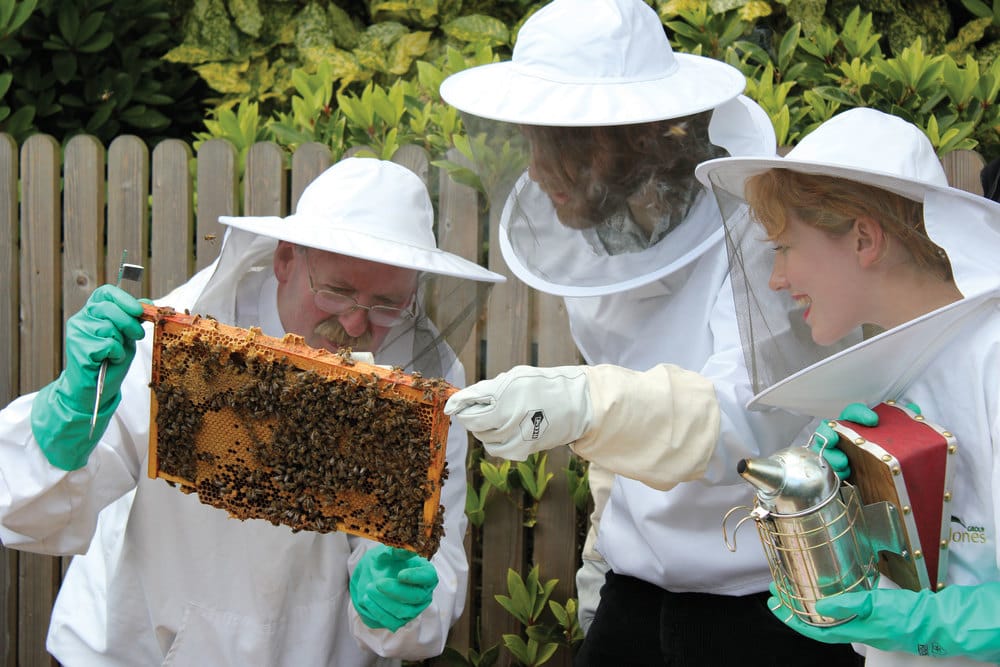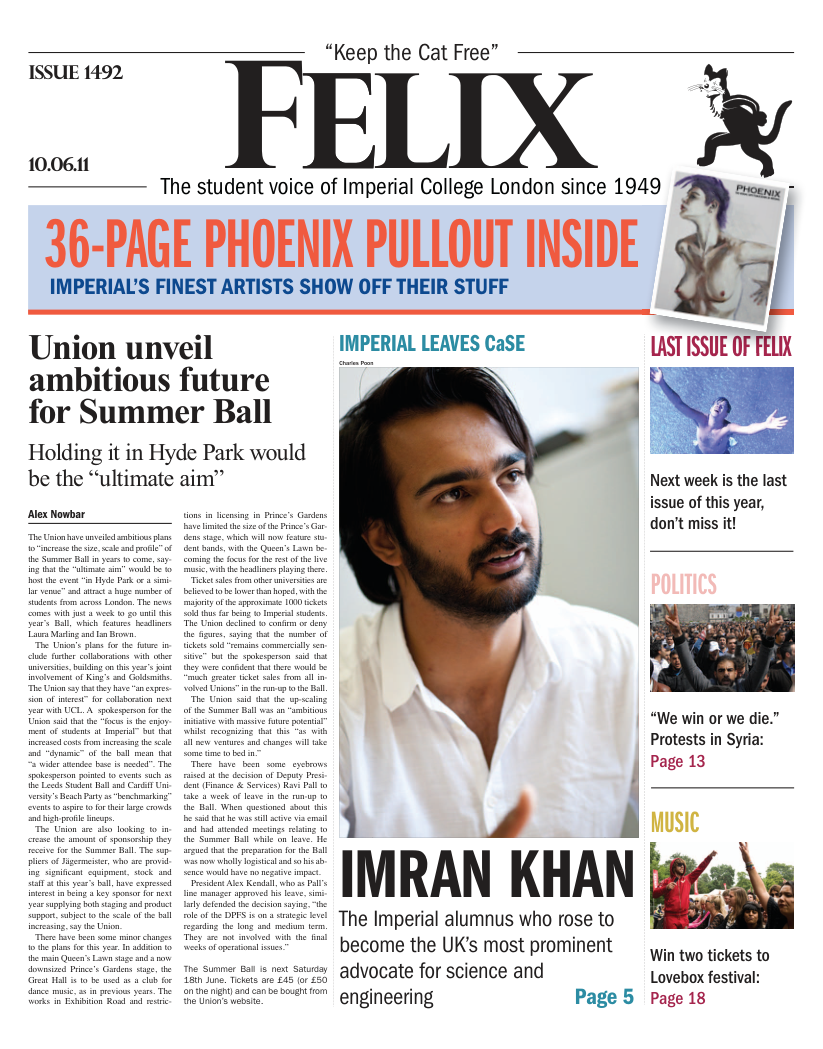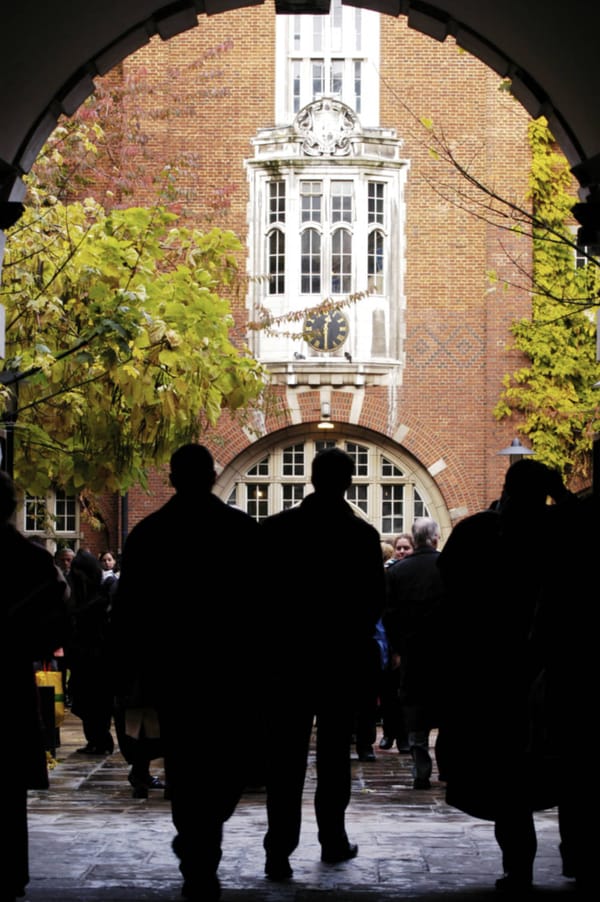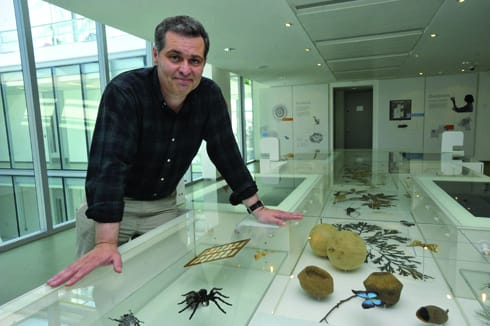Let’s bee green
Bees introduced to Imperial’s ‘Secret Garden’

Imperial’s population has just grown by several thousand. No, there hasn’t been some clerical error or mass invasion – we now have our very own bee colony.
Over the last decade populations of the European Honey Bee (Apis mellifera) have been rapidly declining, with the population in England halving over the last 20 years. Various factors are to blame, including the Varroa mite and the lethal viruses it spreads, the continued expansion of industrial agriculture, pesticide exposure and overwork. However, this is one problem that the masses, rather than governments, have helped to solve. 90% of the beehives registered in the U.K. belong to amateurs – farmers or people just keeping them at home in their gardens. In the past three years there has been a doubling in the number of hives registered – from 40,000 in 2007 to 80,000 in 2010 – and with it, a doubling of UK bee numbers. There’s also been a similar increase in urban beekeeping – hives in roof gardens or allotments inside cities, a trend Imperial is now a part of.
Imperial’s Facilities and Property Management team, led by Nick Roalfe, have put a bee hive in the Secret Garden behind Ethos. The garden isn’t very well known (hence the ‘secret’ bit) but is open to all Imperial students and staff. An initial bee stock has just been put into the hive, with the hope that the population will multiply, perhaps filling a second hive.
Students from the Environmental Society, who will be going on a beekeeping course to learn how to keep the bees happy and healthy, will manage the colony and will train future members to do the job, adding the position of Apiarist to their committee. Anyone can get involved – email esoc@imperial.ac.uk to find out more. Environmental Officers Stef Piatek and Reuben Gibbons were excited about the opportunity: “To get the chance to take part in beekeeping is not something many students, especially those living in central London get to do – it’s almost unimaginable. It’s really exciting that we start off with one hive out of about a quarter of a million that are in the UK, and with years we aim to expand our apiary to two. Somehow the name “Imperial Apiary” sounds like we should have little flying stormtroopers, and we like both of those ideas a lot. Ideally we’d make things like Drambuie or Mead along side one of the food societies with any excess honey.
The hives are part of Imperial’s long term sustainability strategy, known as StepChange. Recent achievements have included the Student Switch Off campaign, which saw a 3% reduction in Halls’ electricity usage, and the ComPod, an on-site composter that turns Imperial’s food waste into compost rather than sending it to landfill.
For the latest updates on the bees’ progress, visit ESoc’s blog








